Helen Wambach - Life before life
Here you can read online Helen Wambach - Life before life full text of the book (entire story) in english for free. Download pdf and epub, get meaning, cover and reviews about this ebook. year: 1979, genre: Science. Description of the work, (preface) as well as reviews are available. Best literature library LitArk.com created for fans of good reading and offers a wide selection of genres:
Romance novel
Science fiction
Adventure
Detective
Science
History
Home and family
Prose
Art
Politics
Computer
Non-fiction
Religion
Business
Children
Humor
Choose a favorite category and find really read worthwhile books. Enjoy immersion in the world of imagination, feel the emotions of the characters or learn something new for yourself, make an fascinating discovery.
- Book:Life before life
- Author:
- Genre:
- Year:1979
- Rating:5 / 5
- Favourites:Add to favourites
- Your mark:
- 100
- 1
- 2
- 3
- 4
- 5
Life before life: summary, description and annotation
We offer to read an annotation, description, summary or preface (depends on what the author of the book "Life before life" wrote himself). If you haven't found the necessary information about the book — write in the comments, we will try to find it.
Life before life — read online for free the complete book (whole text) full work
Below is the text of the book, divided by pages. System saving the place of the last page read, allows you to conveniently read the book "Life before life" online for free, without having to search again every time where you left off. Put a bookmark, and you can go to the page where you finished reading at any time.
Font size:
Interval:
Bookmark:

what happened to you?
The first breath was wonderful. *
I got feelings of great happiness and relief from others in the delivery room.
I was aware that my mother had great fear just at the birth experience.
The feeling I had was of being all alone. I saw no one.

LIFE BEFORE LIFE
A Bantam Book / March 1979
2nd printing .................. July 1979
3rd printing .............. March 1981
All rights reserved.
Copyright 1979 by Helen Wambach.
This book may not be reproduced in whole or in part, by mimeograph or any other means, without permission. For information address: Bantam Books, Inc.
ISBN 0-553-20060-7
Published simultaneously in the United States and Canada
Bantam Books are published by Bantam Books, Inc. Its trademark, consisting of the words Bantam Books and the portrayal of a bantam, is Registered in U. S. Patent end Trademark Office and in other countries Marc a Reglsiraua. Bantam Books, Inc., 666 Fifth Avenue, New York, New York 10103.
introduction / WHY I DID THIS RESEARCH i
VT / WHEN DOES THE SOUL ENTER THE FETUS? IS THE SOUL OF THE INFANT AWARE OF THE FEELINGS OF THE MOTHER?
VII / TAKING THE BIG STEP-GETTING BORN
VIII / ADOPTED CHILDREN, PREMATURE
As word of my research spread, I was asked why I undertook the research.
What got you interested in doing this? " The reporter commented that most psychologists stayed within the safe boundaries of the science without venturing into tire unknown quicksands of the occult. Why, indeed, had I begun to ask such strange questions as Are you choosing to roe born? 7 and Have you, known your mother-to-be in a past life? "
I've always found this a difficult question to answer. I like to turn the inquiry aside with a joke by saying that after twelve years of teaching Introductory Psychology to college freshmen, I was bored, If you think Psychology 101 is boring to study, you ought to try teaching it for years! This is true enough. I never believed that behavior modification or learning theory provided a new insight into human behavior. As long as I received a paycheck for what I had done, I felt that was adequate proof of the theory that rewards and punishments do alter behavior. Beyond this initial insight , the works of Skinner and his associates elaborating on this theme were of little interest to me.
I became a psychologist because I felt it was a way to reach people and to learn about how the human mind worked. I found that psychological research didnt give me nearly as much information on how people thought and how they reacted as my work with patients in psychotherapy had taught me. For this reason I had laid research to one side as being something done by white-coated types, elaborating theories that were of decreasing interest. Subjects for research seemed to be largely white rats and college sophomores, because both these groups were easily available to researchers. I had learned all I cared to know about white rats and college sophomores.
When I began working with patients in psychotherapy, I grew much more absorbed in the fascinating ways that human beings deal with their problems. While I started out with the idea of the doctor seeing patients it didnt take me long to catch on that this was just a social idea and bore little relationship to what was actually happening in the consulting room when someone came to me in hopes of solving a human problem.
Of all the psychotherapy cases have seen In the course of twenty years of therapy, I have never found two people the same. I have never found one explanation that would cover more than one case. The marvelous uniqueness of people and the complex ways in which they try to deal with their environment continued to fascinate me. The usual psychological theories seemed increasingly shallow to me. I wanted to tap deeper levels and explore aspects of personality that I recognized did existthe spiritual dimension of man.
But my interest wasnt just professional. Tin a human being too, and have lived for fifty-three years in tile tumultuous twentieth century. All of the common currents, of our timesthe shifting sands of national and international alignments, the fads and fancies of the American culture, the common trials of living in a rapidly changing technological society, are things I have shared with everyone else in America. Life kept happening to me, and not just to my patients. And as the fife of the twentieth century flowed through me, and as l flowed with the currents or the culture of my time and place, certain questions grew insistent. What are we here for? What is the purpose of all the emotions, struggles and anxieties of our times?
I remember the moment when my mother, eighty and senile, came out of her gentle fog of disorientation and asked, her eyes bright with fear, Im going to die, arent I? Help me! Like the readers of this book, I have had to face the wheel of life and the inevitable death of loved ones. My mothers life seemed to me to have opened like a flower in her childhood, and now that she was eighty and ready to leave this life, her mind and spirit were folding gently like a flower at the end of the day. Her mind wandered, as she confused her great-grandchildren with her childhood playmates. Her life was rounding gently to a close, and she was reliving experiences from the beginning of her eighty-year-old span. But through this gentle cloud of memories that was carrying her into death and beyond, at that one moment, her mind grew sharp and vivid with terror. She knew she was going to die, and she was afraid.
She had had a gentle life, secure in the cocoon of middle-class America. She had grown up a Methodist and had accepted the theology of her day with an unquestioning acceptance. In her way she had interpreted the Christian doctrine to mean that one must always demonstrate good manners toward others, go to church on Sundays, and trust in the authority of the minister and his expert reading of the Bible. But when the moment of full awareness of mortality struck through the fog of her mind, she was aware that this was not enough. What awaited her after death?
There was little I could do to reassure my mother. She asked that I read her the Bible, and I did that. I selected the passages that emphasized the immortality of the spirit, but I don't think she really heard me. Her bony old hand clasped mine tightly as I read the words of the Bible, but her eyes filmed over once again and she drifted gently back into her woolly thoughts. Four weeks later she drifted into a coma and left this life officially about three days after she had spoken her last words. She had gone gently into what she feared was a death of the soul.
But what is death? And if we must die, why are we born at all? It seems highly presumptuous of me to attempt to answer questions that have puzzled philosophers all through recorded history. But there were other questions that had formed my thoughts and now directed my research.
My mother's world was a secure and ordered one. Born in 1894, she had accepted all the technological inventions of her time as unqualified advances. She felt no discrepancy between her enjoyment of automobiles, radio, television, air travel, and the placid certitudes of her horse-and-buggy Protestant childhood. Progress would march hand in hand with literacy and enlightenment, and we would all move into a better world and grow richer and richer. She lived the American dream unquestioningly.
Font size:
Interval:
Bookmark:
Similar books «Life before life»
Look at similar books to Life before life. We have selected literature similar in name and meaning in the hope of providing readers with more options to find new, interesting, not yet read works.
Discussion, reviews of the book Life before life and just readers' own opinions. Leave your comments, write what you think about the work, its meaning or the main characters. Specify what exactly you liked and what you didn't like, and why you think so.

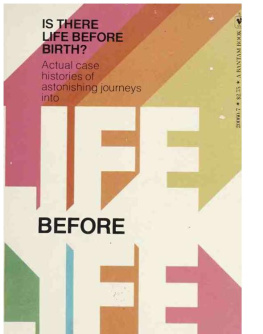

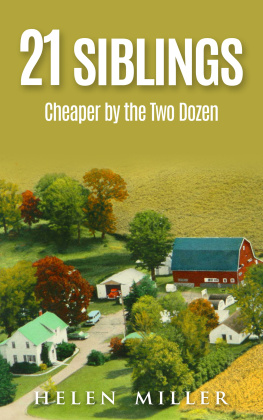

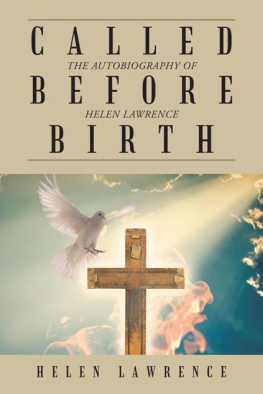
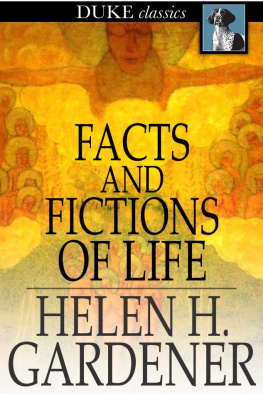
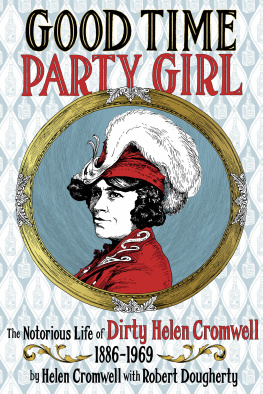
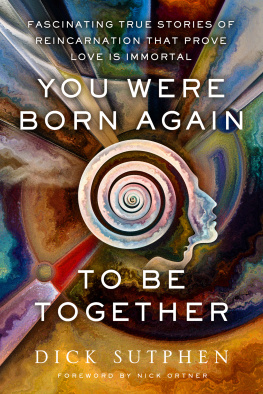
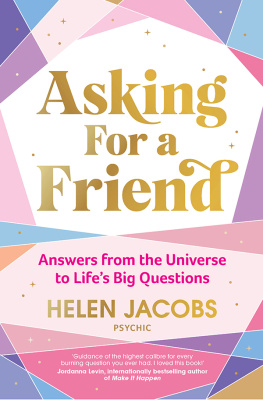

![Raymond A. Moody Jr. - Coming Back - A Psychiatrist Explores Past-Life Journeys [fixed]](/uploads/posts/book/131649/thumbs/raymond-a-moody-jr-coming-back-a-psychiatrist.jpg)